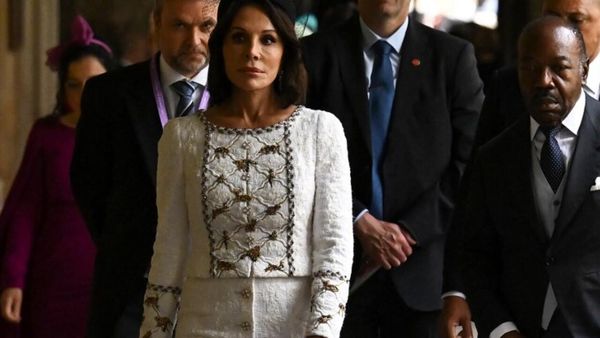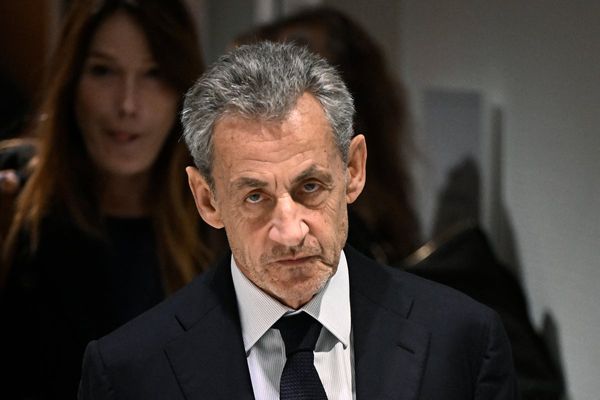
Bold promises to make the city more affordable propelled New York City mayor-elect and democratic socialist Zohran Mamdani to his unlikely win on Tuesday. Among them: free buses, universal childcare and a massive expansion in low-cost housing.
But making the city more affordable for residents is an expensive government task, one many economists and politicians to Mamdani’s right say he faces too many obstacles to meaningfully deliver on his signature ideas.
Further complicating matters is the Trump administration, which will almost certainly pull funding for New York in an attempt to sabotage Mamdani and create budget holes that make it more difficult to pay for new priorities.
And New York City must get state legislature approval to adjust many revenue streams. Matt Gardner, a senior fellow at the Institute on Taxation and Economic Policy, cited the state legislature stopping the city from increasing dog licensing fees in 2014 because of a disagreement between then mayor Bill de Blasio and a lawmaker.
“The dramatic way of putting it is New York City can’t raise dog licensing fees without state legislature approval, and it was true then, and it’s true now,” Gardner said.
However, he and other experts point to tailwinds: Mamdani’s ideas are very popular and would solve basic problems. Democrats now hold large majorities in the legislature, and some see economic and political pathways to making the proposals reality.
How could Mamdani pay for his bold agenda? We broke it down by revenue source and proposal.
Raising revenue
The Mamdani campaign estimates it could raise about $10bn by increasing the corporate tax rate, taxes on the wealthy, and existing fee and tax collections.
Detractors say businesses and the wealthy will relocate, but that is contradicted by credible research. And the corporate tax is on profits made in the state no matter where a company is located, making the argument at least partially moot.
Corporate tax increase
Mamdani estimates a state tax increase between 7.25% and 11.5% on corporate profits would generate about $5bn, much of which would be funneled to New York City. The legislature and governor would have to approve the plan. Legislative leaders have previously backed similar proposals, but governor Kathy Hochul opposes raising taxes.
However, the governor supports universal childcare, a very popular proposal because childcare is widely viewed as too expensive, said Nathan Gusdorf, the executive director of the Fiscal Policy Institute. It would be difficult for moderate Democrats to “resist passing a historical initiative”, he added. “No one says ‘We shouldn’t do anything to make childcare cheaper.’”
The missing element, Gusdorf said, has been a leader like Mamdani who says: “Yeah, it costs money, and we’re gonna raise taxes to get it done.”
Increasing taxes on the wealthy
Mamdani’s plan calls for generating $4bn with a 2% increase on those earning more than $1m annually. Though it’s a city tax, the state legislature must approve the increase, and the idea is generally opposed by moderate Democrats.
But there is a political pathway, Gusdorf said. Increasing taxes on the rich is broadly popular and, as with the corporate tax increase, using the proceeds to fund popular programs makes it easier to sell in Albany.
Rent freeze
In terms of cost, a rent freeze on rent-controlled apartments is the easiest to implement – it’s nearly free. However, a freeze must be approved by the rent guidelines board, and there may not be enough support on it until Mamdani fills it with his own appointments.
Free and fast buses
Mamdani estimates free buses will run at least $700m, which factors in an evasion rate of 48%. Observers say Mamdani could probably cover the cost by streamlining or cutting other programs in the city’s $116bn city budget.
City-owned grocery stores
A pilot program for five city-owned grocery stores that would be built in underserved “food deserts” is estimated at $60m and could also be paid for by adjusting priorities in the $116bn budget.
Building affordable housing units
Many people to the right of Mamdani have written off the plan to invest about $100bn building 200,000 affordable units over 10 years, largely because it would require massive debt. Gusdorf said those arguing against this point largely miss that the plan is not to borrow $100bn at once – the debt would be accrued and paid down in tranches over multiple administrations.
He also stressed the plan does not call for free housing, but affordable housing that would generate revenue to pay down debt. Moreover, the projects could in part be privately financed.
“That’s the way the plan adds up,” Gusdorf said.
Universal childcare
Implementing universal childcare would cost between $2.5bn and $12bn by most estimates, depending on whether it is a city or state program and other factors. Funding is the big question mark – can the corporate and wealth taxes pass Albany? Gardner said he expects some compromise, as often happens with big proposals.
“The things that Mamdani promised will likely get a haircut,” Gardner said. “And the governor’s stated opposition to tax increases may just face reality – she probably can’t get the things she wants on the spending side without some flexibility on the tax side.”







